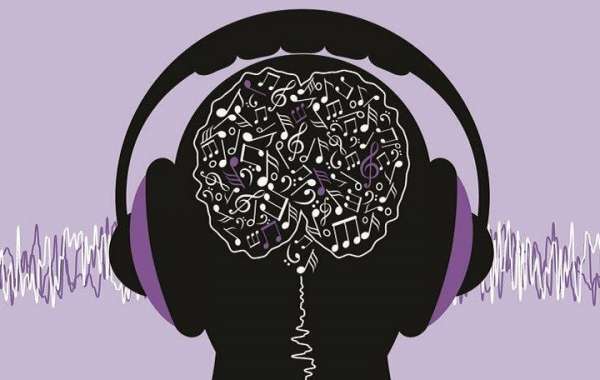Research suggests that listening to music may lessen the impact of depression and anxiety. A 2019 study found that college students who listened to classical music every day for two months had significantly lower levels of anxiety.
Another 2016 study looked at the connection between music and anxiety by studying people who have a fear of heights. Participants were put in a virtual reality simulation of riding up nine floors in an elevator. One group listened to music during the experiment, and the other didn’t. The researchers found that those who listened to music recovered faster from the stress of the experience than those who didn’t. And many studies suggest that listening to music can lower stress hormones as well as blood pressure and heart rate (both spike when you’re stressed).
When you want music to give you a break from what you’re going through, pick songs that have a storyline different from the challenges you’re facing, recommends Bethany Cook, PsyD, a psychologist and music therapist in Chicago. This can temporarily transport you elsewhere and give you a short break from your concerns, just like when you read a good book.
Music Can Help You Feel Your Feelings
When her clients are in a bad mood, feeling weird or off, or managing difficult emotions, Cook recommends putting on a piece of classical music. “Listening to music that does not have lyrics attached to it lets the listener project their personal feelings and their personal struggle into the music,” she says. And some research has found that even listening to “sad” music can make you feel some pleasant emotions, which might lessen the pain you are feeling or allow you to more safely feel sad feelings we sometimes try to avoid in life.
Music Can Make it Easier to Talk About What’s Bothering You
If you don’t have the words to explain what you’re going through, or if you don’t feel comfortable talking about it, song lyrics provide another way to express yourself. Lyrics give you permission to better understand your own situation through someone else’s perspective, Cook says. She uses something called “lyric analysis” when she works with kids and teens in group therapy settings. You can try it alone or with a friend or loved one. Here’s how:
- Bring up the lyrics on your phone(s)
- Listen to the song
- Mark or highlight words and sentences that stand out to you
- Listen to the song again, pausing at the marked places, and discuss or think about why those lyrics spoke to you and how you relate to them
- Listen a final time reflecting on your new appreciation of what the song means to you or your friends
Music Can Help You Figure Out Who You Are
Discovering music that resonates is one key way teens and young adults define who they are and who they want to be, says Michael Viega, PhD, a professor of music therapy at Montclair State University in Montclair, New Jersey. Both Viega and Cook strongly encourage parents, teachers, and caregivers to approach teens’ and young adults’ music with curiosity.
Showing interest in musical taste is a way to show an interest in who a young person is or is becoming. Even listening to music with questionable lyrics is an “opportunity,” says Viega. It gives caregivers a chance to open a dialogue, asking teens what they think is happening in the song. Doing so can lead to meaningful conversations about important topics that can be difficult to talk about, says Viega.
“Music first turned me on to drag culture and the queer community when I was a teenager,” says Viega. “It turned me on to feminist ideals, to ecology and ecological thinking.”
Music Builds Community
Making music — through singing or playing an instrument in school, in a band, or with friends — can connect you with a community of people who share a common interest. And even if you don’t play or sing, you can also find people who share your love for a particular band or type of music. Feeling a sense of belonging to something larger than yourself is a proven way to improve mental health.







